Isopropyl alcohol is a common household disinfectant. You may have heard that it’s also safe to use on electronics- but is that really true? In this article, we will explore the safety of using isopropyl alcohol on electronics. We’ll answer some common questions and provide tips on how to safely clean your devices with this chemical. So stay tuned to find out whether isopropyl alcohol is really safe for electronics!
What is Isopropyl Alcohol?
It’s most commonly used as a cleaning solution for hard surfaces, like countertops and glass. But did you know that it can also be used to clean your electronics?
Isopropyl alcohol is made by combining water and propene, which is derived from natural gas or crude oil.
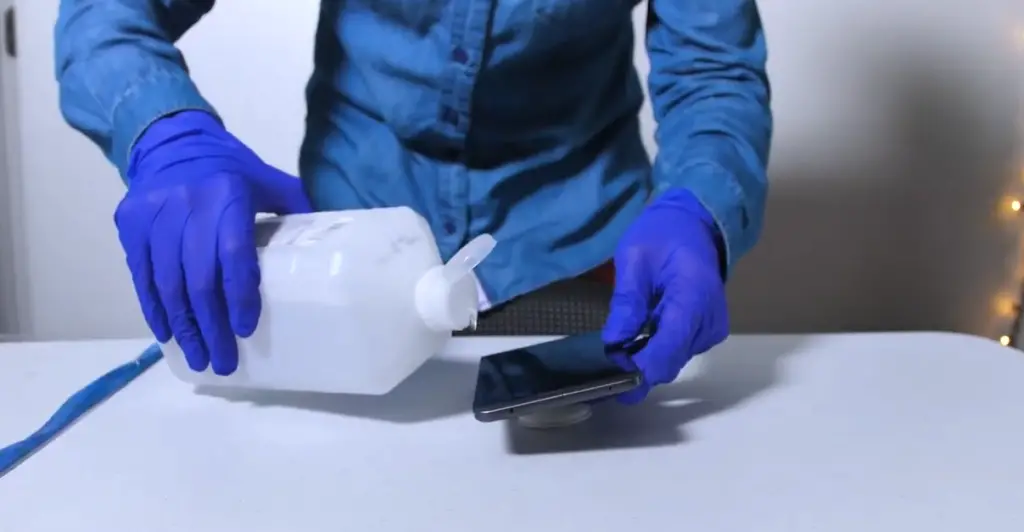
It’s also known as propylene and methyl ethylene. Isopropyl alcohol has many names including rubbing alcohol, IPA, Iso Alcohol,Propan-l-ol, Propan-l-ol and sec-propyl alcohol.
So why is isopropyl alcohol used for cleaning so often? There are a few reasons which we will discuss right now! [1], [2]
It dissolves a variety of contaminants
One of the main reasons that isopropyl alcohol is used as a cleaning solution is because it’s great at dissolving a variety of contaminants. This includes things like fingerprints, dust, and even water spots!
Isopropyl alcohol is also effective at removing residue from adhesives and tape. This makes it ideal for cleaning up after you’ve made repairs to your electronics or removed old components.
Dissolving these contaminants can help to prevent corrosion and other damage to your electronics.
It leaves no oils or traces of residue
Isopropyl alcohol is a drying agent, which means it leaves no oils or traces of residue. This makes it ideal for cleaning both electronics and countertops because you don’t have to worry about either running the aesthetics or damaging the delicate components with chemicals.
It evaporates quickly
Isopropyl alcohol evaporates quickly, which makes it ideal for cleaning surfaces and electronics. When you’re cleaning something with isopropyl alcohol, the solution will dry clear so you can see if you missed any spots. This also helps to prevent streaks on glass or other surfaces.
It’s important to note that isopropyl alcohol should never be used on electronics that are still wet. The solution will cause the water to evaporate and could damage the electronic device.
It’s less toxic than alternatives
Another of the main reasons isopropyl alcohol is used as a cleaning solution, especially for electronics, is because it’s less toxic than other alternatives. Yes, it’s essentially a chemical, but it breaks down quickly and doesn’t release harmful chemicals into the air like other cleaners. When you’re using a product to clean something that you’re going to be touching or using frequently, you want to make sure that it’s not going to cause any harm.
It’s also non-corrosive, so it won’t damage your electronics like some other cleaners can. This is especially important for delicate electronics, like laptops and phones.
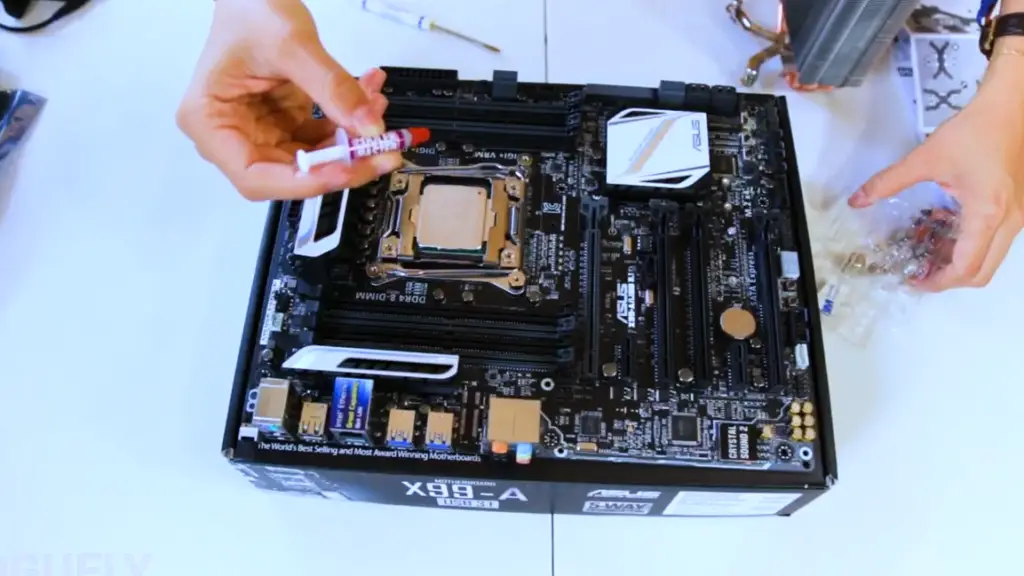
Isopropyl alcohol is classified as a flammable liquid, so it does pose some risks if not used properly. However, when used in the proper concentrations and for the intended purpose, it is safe for most people.
You should always use caution when handling and using isopropyl alcohol and make sure to read the label carefully before use.
It disinfects viruses and bacteria
Another of the reasons why isopropyl alcohol is such a versatile cleaning solution is because it’s a powerful disinfectant. In fact, it’s so powerful that it’s often used in hospitals to sterilize equipment. When used correctly, it can kill bacteria and viruses on contact. That’s why it’s often used in hospitals to clean equipment and surfaces.
Isopropyl alcohol can also be used to clean your computer keyboard, phone screen, or any other electronic device. Just make sure you use a lint-free cloth so you don’t damage the surface!
It can also be used as a hand sanitizer, although it won’t be as effective as one that contains at least 90% alcohol.
It can be mixed with water
Last of the benefits of isopropyl alcohol is that it can be safely mixed with water. This makes it a great choice for cleaning because you can dilute it to your desired strength. For example, if you’re cleaning something delicate, you might want to use a 50/50 mixture of isopropyl alcohol and water. But if you’re cleaning something tougher, like a keyboard, you might want to use a stronger solution of 70% isopropyl alcohol and 30% water.
Another benefit of mixing isopropyl alcohol with water is that it lowers the risk of fires. Isopropyl alcohol has a high flash point, which means it’s difficult to ignite. But when mixed with water, the flash point is lowered, making it safer to use around electronics.
Just remember, when using any cleaning solution on your electronics, it’s always best to test it on a small area first. This will help you avoid damaging your devices.
It’s pretty affordable
You can find 70% isopropyl alcohol pretty much anywhere for under $20. That’s a lot cheaper than other commercial cleaning solutions on the market. It’s also important to note that 99% isopropyl alcohol is more expensive and harder to find. You don’t need to use 99% isopropyl alcohol for cleaning the surfaces of your electronics. 70% will do the job just fine!
But can this versatile product be used on all electronics? The short answer is yes—in most cases. Keep reading to learn more about how to safely clean your electronics with isopropyl alcohol. [1], [2]
Is 70% Isopropyl Alcohol Safe for Cleaning Electronics?
Finally, we get to the big question—is 70% isopropyl alcohol safe for cleaning electronics? To find out the exact answer, we need to understand what the percentages mean.
The percentage of isopropyl alcohol in a solution refers to the volume of isopropyl alcohol present in a 100 mL solution. For example, 70% isopropyl alcohol would be 70 mL of isopropyl alcohol and 30 mL of water. Isopropyl alcohol evaporates quickly, which makes it great for cleaning things like computer keyboards and cell phone screens. But does that mean it’s safe to use on electronics?
As we all know, water is an enemy of electronics. It can cause short circuits and damage sensitive components. So, the answer to our question is a resounding not always —you should not use 70% isopropyl alcohol on sensitive electronic devices. The best way to clean your electronics is with a product that’s specifically designed for the task, like compressed air or an electronic cleaning wipe.
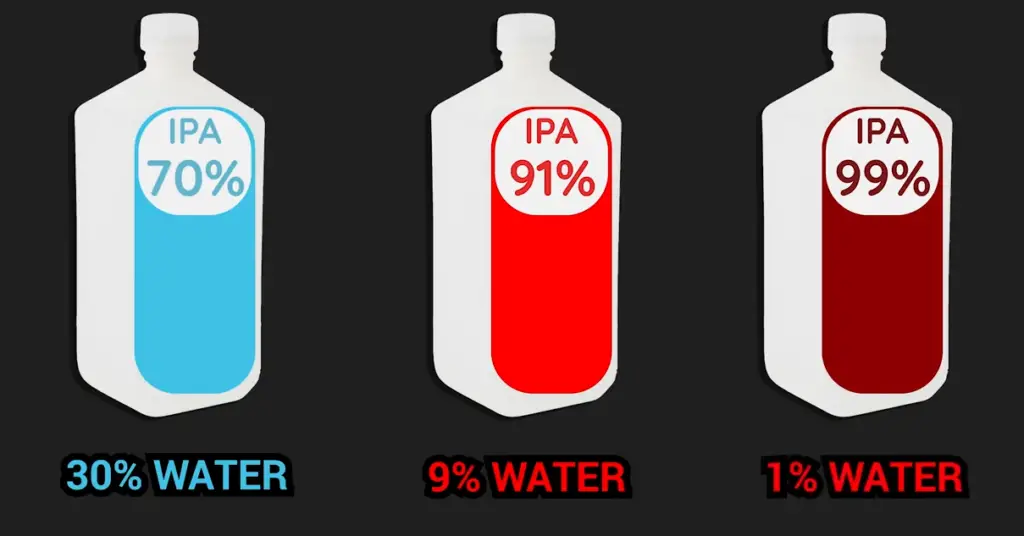
If you still want to use isopropyl to clean your sensitive electronic parts, like motherboards, you may use a higher percentage solution, like 91% isopropyl alcohol. But keep in mind that this solution will evaporate even more quickly than the 70% solution, so be sure to work in a well-ventilated area and don’t use too much. A little isopropyl goes a long way!
Still, 70% isopropyl alcohol is perfectly safe for cleaning plastic and metal surfaces like computer cases, keyboards, and cell phones. So, if you’re looking for a safe way to clean your electronics, give 70% isopropyl alcohol a try!
We’ve already mentioned how useful isopropyl alcohol is for cleaning delicate electronic parts, so it’s definitely a to-go solution for cleaning your keyboard. Simply apply some of the solution to a clean cloth and wipe away any dirt, dust, or fingerprints. Make sure to power off your keyboard before cleaning for safety reasons, and be sure to use a very small amount of solution—too much isopropyl alcohol can damage the plastic keys. [1], [2]
Tips on Using Isopropyl Alcohol Safely
Now that we know isopropyl alcohol is safe for cleaning electronics, let’s discuss a few tips on using it safely. Since you will be working with electronics, you need to be extra careful not to damage them.
Unplug your electronics before cleaning them
This will protect them from any potential damage that could occur if the alcohol were to come into contact with live electrical components.
Once your electronics are unplugged, you can begin cleaning them with isopropyl alcohol. Be sure to use a clean, lint-free cloth when applying the alcohol to avoid leaving behind any unwanted residue.
After you have cleaned your electronics with isopropyl alcohol, let them dry off completely before plugging them back in. Allowing them to air dry is usually sufficient.
Don’t use isopropyl alcohol near open flames
Isopropyl alcohol is highly flammable, so you need to be careful when using it. Keep it away from open flames and heat sources.
Avoid getting isopropyl alcohol on your skin
Isopropyl alcohol can be damaging to your skin, so it’s important to avoid getting it on you. If you do get it on your skin, make sure to wash it off immediately. In addition, you should always wear gloves when working with isopropyl alcohol. This will protect your hands from the harsh chemicals.
Finally, make sure to work in a well-ventilated area. The fumes from isopropyl alcohol can be harmful if inhaled for too long.
Don’t use it on finished surfaces
Isopropyl alcohol is safe for cleaning the majority of electronics, but you should avoid using it on finished surfaces. This includes screens, certain keyboards, and anything with a delicate finish.
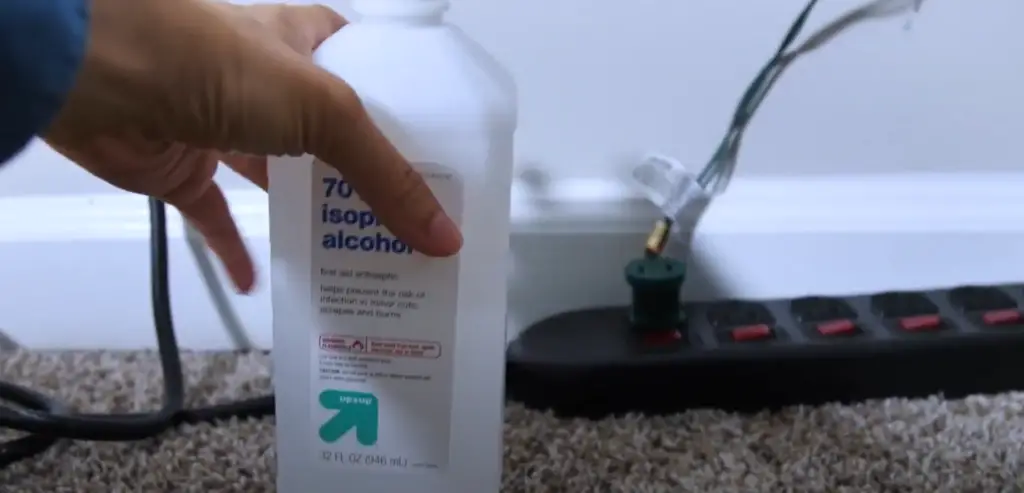
You also want to be careful not to get isopropyl alcohol on any exposed wiring. Alcohol can damage the insulation on wires, making them more susceptible to shorts and electrical fires. [3]
What Are the Alternatives for Cleaning Electronics?
As we’ve seen, isopropyl alcohol is a great solution for cleaning electronic devices. But what are some of the other options?
Compressed air
One popular alternative is compressed air. Compressed air can be used to clean keyboards, laptops screens, and other hard-to-reach places. Just be careful not to use too much pressure, as this can damage sensitive components.
Unfortunately, compressed air can do little to nothing to remove the adhesive residue left behind by stickers or other materials. For that, you’ll need something a bit stronger.
Acetone
Acetone is another popular cleaning solution. It’s often used for cleaning electronic surfaces. Acetone is also effective for removing fingerprints and other oils from surfaces like cell phone screens and keyboards.
However, acetone can be dangerous if used improperly. Inhaling too much of the fumes can cause dizziness, nausea, and headaches. So, it’s important to use acetone in a well-ventilated area and to avoid inhaling the fumes directly.
Additionally, acetone can damage some plastics, so it’s important to test it on a small area of the surface you’re cleaning before using it broadly.
We also suggest against using it on sensitive electronic parts, like motherboards. Acetone is very strong and can damage these delicate surfaces.
Just like isopropyl alcohol, acetone is flammable. So, be sure to keep it away from open flames and hot surfaces.
Distilled water
Distilled water is free of impurities, which means it won’t cause any damage to your electronics. Simply apply some distilled water to a clean cloth and wipe away any dirt or grime.
Just like with isopropyl alcohol, be sure to power off your electronics before cleaning them with distilled water. And as always, use a very small amount of solution—too much can damage delicate electronic parts.
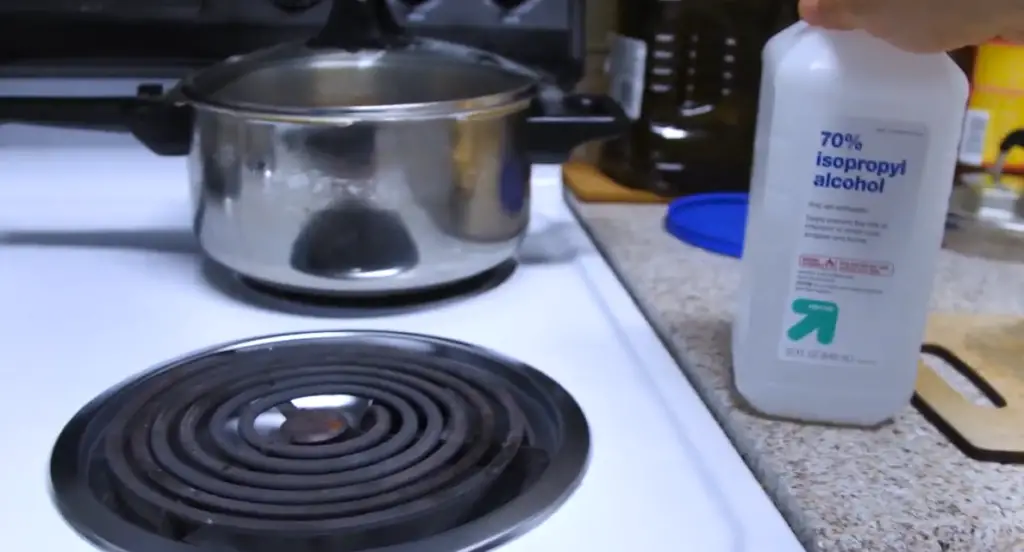
It’s generally safe for cleaning circuit boards and other sensitive electronic parts. However, keep in mind that distilled water will take longer to dry than isopropyl alcohol, so be sure to let it evaporate completely before powering on your device.
Dry microfiber cloths
Dry microfiber cloths are one of the best ways to clean your electronics. They’re safe for all types of surfaces and they won’t damage delicate electronic parts. Microfiber cloths are also great for removing fingerprints and smudges. To use a microfiber cloth, simply wipe down your electronic device with the dry cloth.
Unfortunately, microfiber cloths won’t be much use for cleaning stubborn dirt and grime. For that, you’ll need a cleaning solution. [1], [4], [5]
FAQ
Can I use isopropyl alcohol to clean my laptop matte screen?
No. You should never use isopropyl alcohol on a matte screen. The chemicals in isopropyl alcohol can damage the coatings that make up a matte screen. To clean your laptop matte screen, you can use a distilled water and microfiber cloth method. This will safely clean your screen without damaging it.
What percentage of isopropyl alcohol is safe for electronics?
The general rule of thumb is to use a solution that is ninety-nine percent pure for cleaning electronic equipment. However, seventy percent isopropyl alcohol is often effective for many electronics tasks like cleaning the adhesive off of a LCD screen.
You should avoid using alcohols that are less than ninety-nine percent pure because the solution may have too much water content. The water can damage sensitive electronic components by causing corrosion.
Is 70% isopropyl alcohol safe for PC?
The answer is not a simple yes or no. 70% Isopropyl alcohol is usually recommended for cleaning purposes. The percentage of water in the solution will not cause any damage to the internal components of your PC.
However, using lower concentrations of isopropyl alcohol can be corrosive to some sensitive electronic components and should be avoided unless it’s absolutely necessary. So avoid using 70% solution on any circuitry boards or other sensitive electronic parts.
Will isopropyl alcohol damage electronics?
It’s a common question with a few different answers. The most definitive answer is that it depends on the electronics in question. Some devices are more sensitive than others and can be easily damaged by chemicals.
But generally, if you’re being careful about it and you’re using isopropyl alcohol that’s diluted to no more than 70%, your electronics should be safe. Just avoid spilling it on sensitive components.
Can you use 70% isopropyl alcohol to clean the motherboard?
Yes, 70% isopropyl alcohol is safe for cleaning the motherboard. Just make sure to use a clean, lint-free cloth and avoid getting any moisture on the components. Rule of the thumb is the higher the percentage is, the less chances it will damage your electronics.
Still, the 70% solution is too watered for cleaning some sensitive parts like circuitry or wires. In this case, you should use a 90%+ solution.
Useful Video: How To Use Isopropyl Alcohol Disinfectant (70% vs 91% vs 99%)
Conclusion
Isopropyl alcohol is safe for electronics if used in the right concentrations. 70% isopropyl alcohol is the most common concentration found in stores, and it works great for cleaning electronic devices. However, we wouldn’t recommend you to use it on circuits or other sensitive components. For those, get at least a 90% solution.
If you’re looking for a safe and effective way to clean your electronics, isopropyl alcohol is a great option. Just be sure to use the right concentration and follow all safety precautions. Thanks for reading!
References
- https://gotparts747.com/blogs/news/cleaning-electronics-with-isopropyl-alcohol
- https://www.ifixit.com/News/36877/ask-ifixit-everything-you-wanted-to-know-about-isopropyl-alcohol
- https://www.cleanipedia.com/gb/in-the-home/cleaning-with-rubbing-alcohol-dos-and-donts.html
- https://killerguitarrigs.com/electrical-contact-cleaner-substitute-for-guitars/
- https://www.rubbing-alcohol.com/alternative-to-rubbing-alcohol-for-cleaning-electronics/




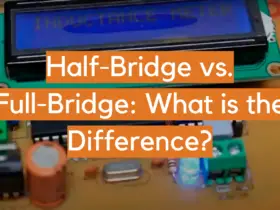
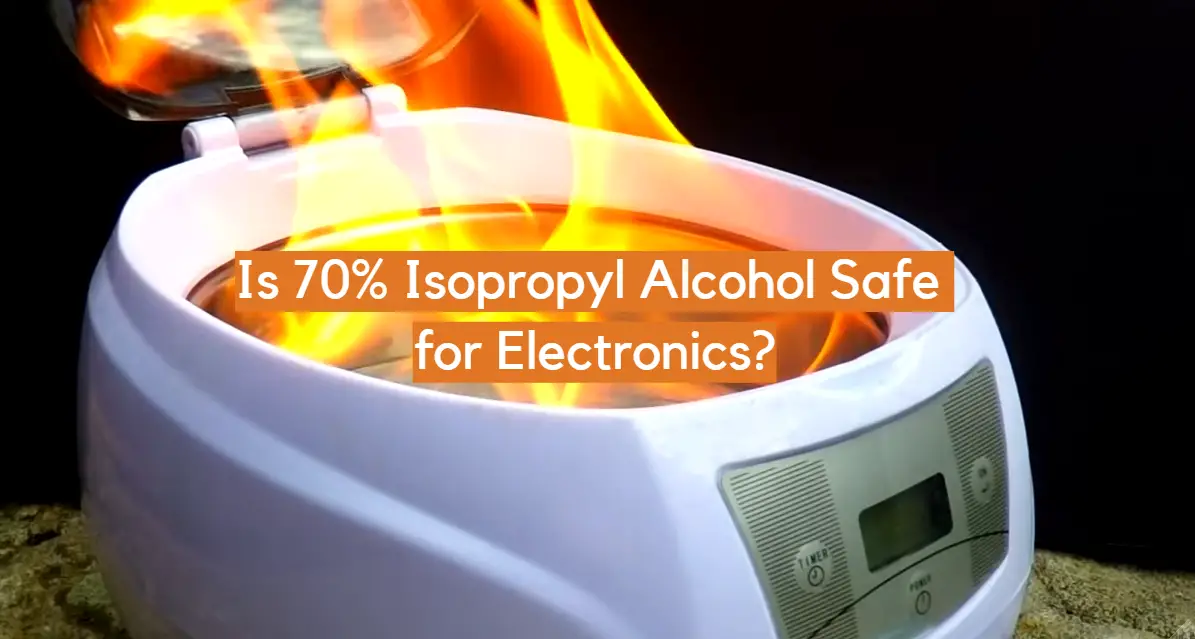
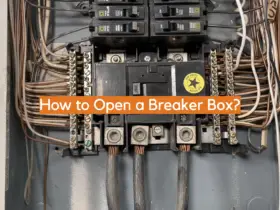

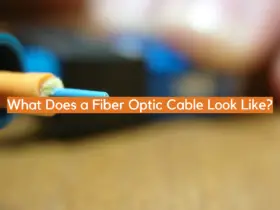
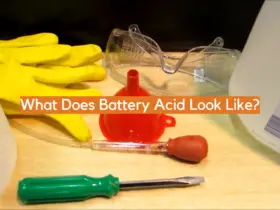

Leave a Reply